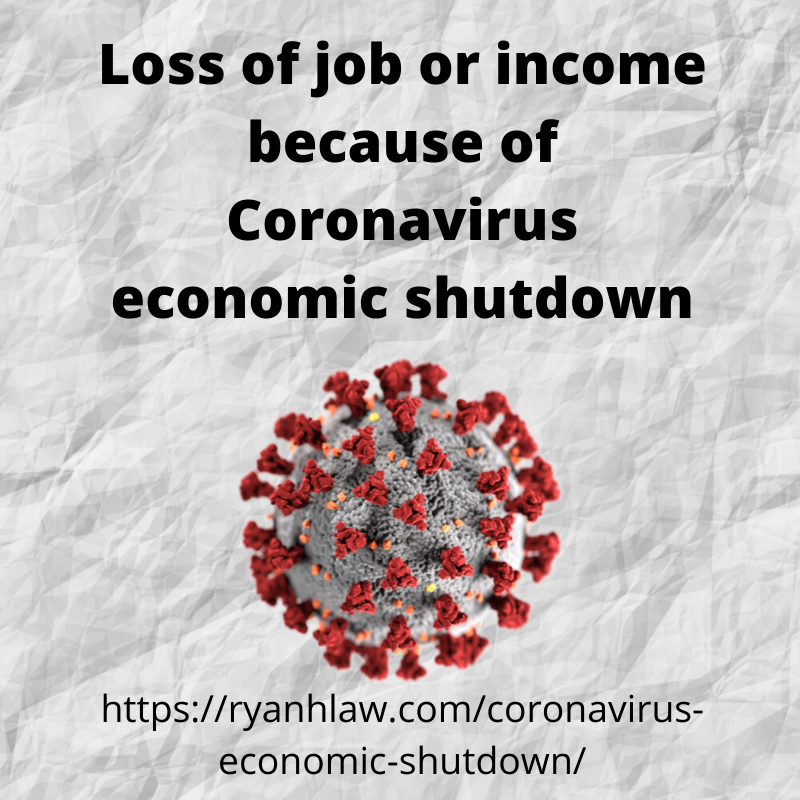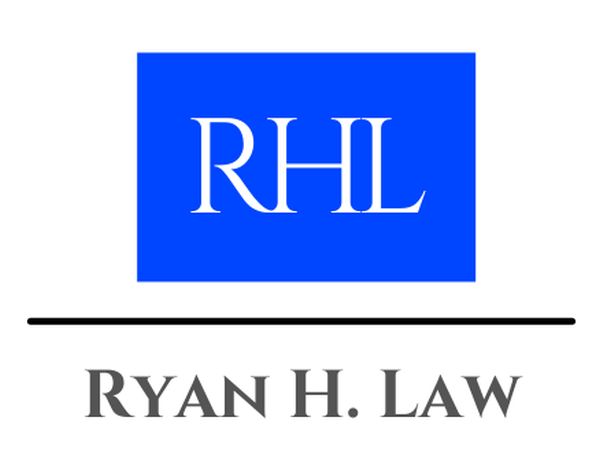 NOTE: This article will be updated as new guidelines or laws are passed about economic support during the Coronavirus pandemic.
NOTE: This article will be updated as new guidelines or laws are passed about economic support during the Coronavirus pandemic.
NOTE: Updated 3/27/2020 due to the passage of the CARES Act.
I had to pick up some things at my office recently and as I walked the halls, generally full of students heading to classes, studying, eating, and just hanging out, I was struck by the quietness. I walked by the empty food court and locked computer labs. This is a familiar scene all over the world right now – businesses closed and many people working from home. Unfortunately, this is not the case for many workers. If their workplace is closed, they are not working from home. They are simply not getting paid.
If you are facing the loss of income because of the Coronavirus you are not alone. CNN reported that half of American workers are at risk of layoffs, furloughs, fewer hours or wage cuts, with about 20% of all jobs in America at high-risk.
Employees in the transportation, travel and tourism, hospitality, temporary help, and restaurant workers are going to be the hardest hit. While many employees are able to work from home, workers in these industries generally do not have that option. After all, if no one is getting their hair cut, or staying in hotels, or flying, or eating in restaurants, these service workers don’t have a job.
What should you do if you find yourself in a situation where your paycheck is affected?
Emotional support
If you are in this situation you are likely feeling a lot of emotions. Overwhelmed, panic, anger, sadness, and hopeless are the terms I most often hear. Allow yourself to feel those emotions, but if they start to become overwhelming reach out to someone for help. Don’t go through this alone – talk to a therapist, a religious leader, or a friend. If you or a loved one is having suicidal thoughts, contact the National Suicide Prevention Lifeline at 1-800-273-8255.
Assess where you are now
Take some time and start to make a list of resources that you have available, including food, medicine, and other supplies. Do you have friends or family that you could stay with if needed? Do you know how to make low-cost meals? What about intangible resources such as a skill you could use to make some additional money?
The list below will have many additional resources that you may be able to utilize.
File for unemployment
The CARES Act expands unemployment insurance for four months and increases the benefit amount by $600 per week. It also eliminates the one-week waiting period, and it includes many workers who typically may not qualify, such as furloughed employees, freelancers, and gig economy workers.
It can take some time to work through the unemployment process, so if you are in this situation get your request in right away. You can find information about unemployment benefits here with a list of state offices here.
Temporary work
While many employers have had to lay off employees, others are hiring part and full-time workers, including Amazon, Costco, CVS, pizza chains, Dollar General, Walmart and more. USA Today has an article that links to many of the employer’s websites who are hiring.
Tax return
While the deadline to file taxes has been moved to July 15, if you are expecting a refund get your taxes filed right away. If you owe money you may want to consider waiting to file. If you need help filing your tax return, there are some Volunteer Income Tax Assistance sites open (they are all practicing social distancing and limiting the number of people that can come in) or you can use IRS Free File. Information about both resources can be found here.
Student loan payments
Student loan payments are automatically suspended until September 30, 2020, and no interest will accrue during that time. Only certain loan qualify. More information about student loans can be found in my article Changes to Student Loans During the Coronavirus Pandemic.
Mortgage or rent payment
The CARES Act allows borrowers with loans owned by Fannie Mae, Freddie Mac, FHA, VA, and RHS to suspend payments for 180 days, with a second 180 day extension available. During that time only regularly scheduled interest can accrue.
The CARES Act places a moratorium on certain eviction as well.
More information to follow about this topic.
Refinance
If your credit is good and your mortgage rate is at about 3.75% or above, contact several mortgage lenders to see if you can qualify for a lower rate with minimal out-of-pocket costs. If you have some equity in your home you may even be able to take some cash out to pay off some debt. Rates vary from day-to-day (or in some cases, hour-to-hour), but it is likely worth your time to contact some lenders. In addition, if you do refinance, you generally skip a payment in the process.
Utilities
While there are no specific federal guidelines regarding payment or shut-off of utilities, many states and companies have agreed to a moratorium on phone and utility terminations. Companies include Ameren, Dominion Energy, PG&E, Xcel Energy and many others. Contact your service providers if you are having trouble making your payments.
Food Stamps or SNAP
If you need help with food, file for Food Stamps, or SNAP (Supplemental Nutrition Assistance Program) right away. The CARES Act provided additional money to the SNAP program to ensure the program can provide for those who need Food Stamps. You can find information here.
Government checks
Under the CARES Act many individuals and families will be getting checks. Individuals will receive $1,200 checks, married couples will receive $2,400, and families will receive $500 checks for each child under the age of 17. These amounts are phased-out for individuals who earn between $75,000 – $99,000, while married couples will be phased-out for those who earn between $150,000 – $198,000.
As an example, a family with a married couple and two children who earn $75,000 per year will get $3,400.
Income phase-outs will be determined by 2019 tax returns if they are filed, and 2018 taxes if not. If you do not file taxes there will be alternate methods to determine how to get checks.
While these checks will be helpful for many in making some payments or stimulating the economy, the IRS is saying it will likely take until at least May to get checks out.
I would urge consumers to consider using these checks to 1. get caught up on bills; 2. pay off debt; 3. establish an emergency fund; and 4. build up your food supply.
Plan for the future
As this pandemic passes and the economy starts to return to normal I would encourage you to start to make preparations for the future. We may or may not face something like this again, but many of us will face periods of economic uncertainty.
It makes sense for everyone to do a few things to prepare:
- Get high interest debt paid off.
- Build up an emergency fund with 3-6 months worth of expenses.
- Build up a supply of food and other supplies you will actually use (dry beans, canned goods, etc.). Don’t panic buy – but build this up over time.
Conclusion
Hopefully this article has given you some resources/support that you can utilize to help you or a loved one get through this crisis.
If you have questions or comments, let’s start a conversation in the comments below.
I will update this article as more updates are released.

Leave a Reply